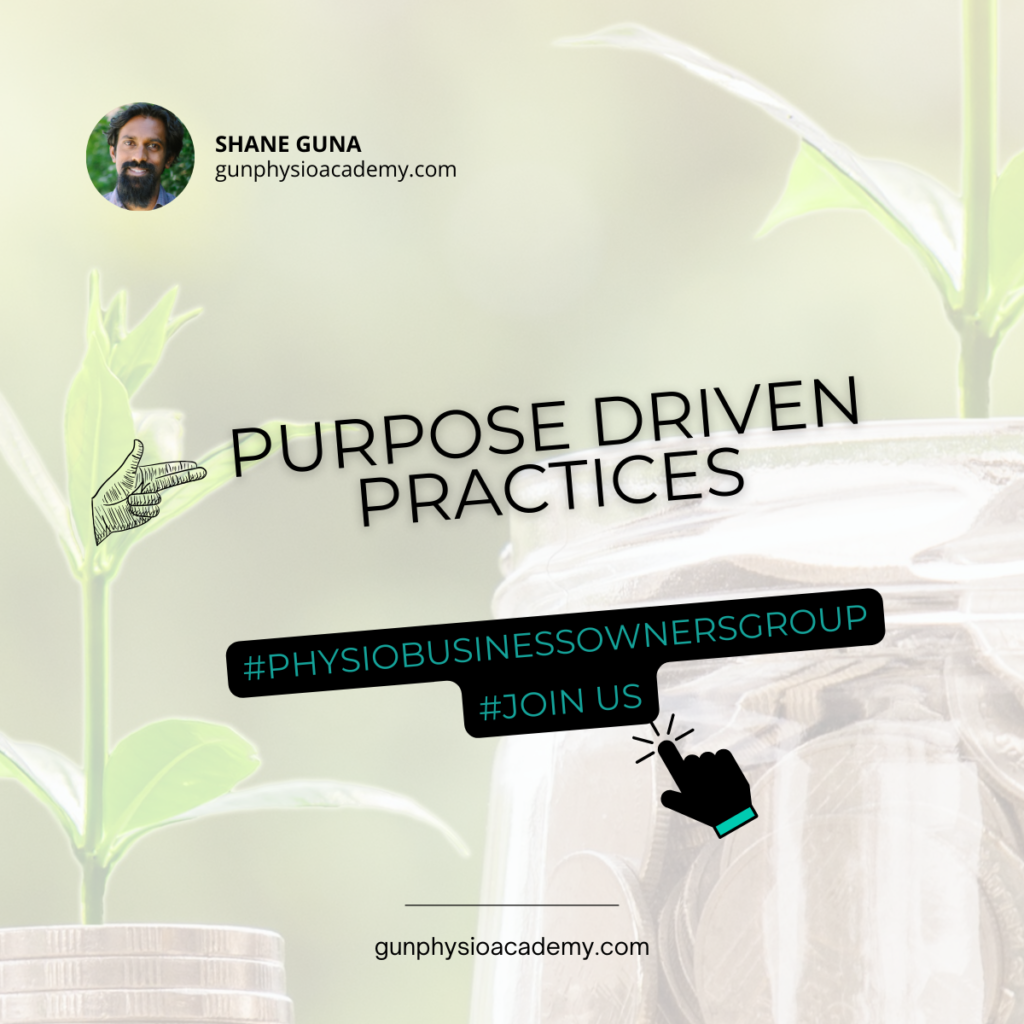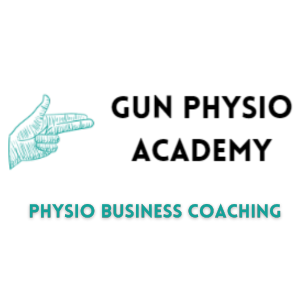In one of my early blogs I introduced the 4 types of physiotherapists. This included one which I regrettably called “the lost soul“.
I did this for a reason however, the lost soul is really a personality that exists within all of us.
It is very much a place where we have all been at one stage or another, in our careers and dare I say, in our lives as well.
To be able to say that you are clear on your direction, what you want to be and how you are going to get there is really a bit of a pipe dream.
Taking such a rigid perspective sets one up for disappointment, if anything comes along and blows you off that exact course.
We’ve just been through a global pandemic, a lot of us have realised that there are substantially bigger things that sit outside our control which shape our journeys.
Life can only be understood backwards, but it must be lived forwards
Søren Kierkegaard
The Path of Least Resistance
Every so often, one gets the opportunity to step back and just observe.
One thing becomes clear from this broad perspective.
The majority of people are prescribed a single path when they enter adulthood. The idea is that this prevents you getting lost in the sea of opportunity.
- Find a job
- Get married
- Buy a house
- Have children
- Work until you are 65
- Retire
This isn’t a path that I am too keen to guide anyone down.
And there is a better option out there, but it requires some critical behavioural changes that take you outside of the pack.
Firstly, one must have a desire to truly be separate from the majority.
And be happy to live with the ups and downs, often substantial downs, of going it alone.
Biologically, we aren’t wired to go it alone.
We are wired to work together with others and seek safety within the herd.
I call this, the path of least resistance.
The 1% understand this, and it makes it so much easier for them to leverage their power.
What do Lost Soul’s do?
Well for starters, they don’t exactly know who to follow, which makes them vulnerable.
The path from school to university is quite rigid.
Information is essentially handed to you and you are asked to learn it.
Many universities these days are aware of how much ‘rote’ learning goes on, but they lack systems to prevent this.
Consequently, there is very little free thought or opinion occurring on university campuses.
I found this especially true in science based professions.
If something hasn’t been through rigorous testing such as a systematic review or a randomised controlled trial, it simply doesn’t have a right to exist.
Due to this teaching method, we do notice that some graduating physiotherapists may be more rigid in their perspectives, particularly around the use of manual therapy.
Often, this creates immediate challenges with the business owners who take them on.
People in business tend to be pragmatists. Problem solvers.
Understanding there are nuances which mean there often isn’t a right way and a wrong way.
It’s more about finding a way to get to a solution.
People in education tend to be idealists.
They tend to look to create perfect solutions that align with their beliefs.
This is the quest of academia. To find the perfect answer.
When we exit education and enter the workforce, there is an enormous clash of cultures.
The sheltered world of idealism vs the pragmatic and often ugly, real world.
You are the product
I wrote earlier this month on the dawn of the single-person business.
And it’s actually happening faster than what I had thought.
For example, this week I discovered that a friend of mine who rents space to independent health practitioners has filled his entire rental books and is looking to expand.
People are out there and they’re doing it.
So if there is one thing I’d take from this blog, it’s that each step you make from today ought to be shaping you in the direction of becoming an independent practitioner one day.
And guess what?
– When we take this broader perspective, immediately a lot of things become clearer.
Things like managing busy diaries, and being consistent with our work ethic.
And learning new skills at both clinical and non-clinical levels.
The earlier in the game you establish these skills, the better placed you will be to avoid rolling down the path of least resistance.

Find the ‘sweet’ spot
I recently did a Facebook survey of close to 150 health business owners, majority physios.
Of those surveyed, less than 3% started their business without working as someone else’s employee.
Less than 29% went out on their own with under 3 years experience.
The majority, 67% had more than 3 years experience under someone else, with most having done more than 5 years and often beyond 10 – similar to myself.
From talking to a lot of people in business however it’s rare to find anyone who regrets taking this leap.
Even those who ‘fail’ still see the learnings as immensely powerful and usually find their feet somewhere far better than where they had been originally.
And the majority also openly state that they wish they had taken the leap sooner.
I would say that I think the sweet spot is at this 3 year mark.
This is where most people face their first proper career crisis; when you feel the reemergence of your lost soul.
It takes time to learn the skills of physiotherapy.
It often takes even more time to “un-learn” much of what you have been taught at university.
Good things take time.
“It’s only when you have stopped doing anything you were taught at university that you can actually call yourself an accomplished therapist.”
Shane GunARATNAM
Your first 3 years out as a physio
This is a tried and tested pathway to prevent you getting lost in the system:
1. Get as broad an experience base as possible.
- So within this first 3 years, you ought to first seek to become competent in treating every part of the body. This goes without saying.
- You then want to look at ways to work with as many different populations as possible.
- For those who go through public sector, this does help to broaden your perspective in health and I would definitely recommend it as a great starting point for young therapists.
- For those that work strictly in private practice. It might mean doing sports teams, occupational health; doing some aged care work or home visits.
- But doing anything you can to broaden the experience you are getting.
- And I don’t know many employers who wouldn’t be in favour of this.
2. Undertake post-graduate courses to gain knowledge faster
- Yes, you are going to need to educate yourself along this journey.
- If you wait to be spoon-fed, you will be waiting a long time to get to the point of competency you desire.
- This also helps to broaden your learning as you are less reliant on a single mentor or your employer.
- You shouldn’t be reliant on your employer for your professional development, it’s nice to have this – but it’s better to take accountability for it yourself.
3. Learn the commercial skills behind running a business
This is so important and this is literally why I started the Gun Physio Academy.
This includes:
- How to build a unique caseload
- Networking and relationship marketing
- Developing your own niche
- Learning about basic business finance
4. Embed personal skills and habits that help build resilience
- Classically, this is diet/sleep/exercise, but it’s actually so much more than this.
- Things like meditation and mindfulness are very in-vogue and these are super valuable skills for anyone, but especially those who aspire to live in the space between comfort and anxiety – otherwise known as ‘the growth’ space.
- Establish as strong a personal network outside of work as you can – these are the people who will help to keep you grounded during the good times, and be there for you during the bad.
You have brains in your head.
Dr Seuss
You have feet in your shoes.
You can steer yourself any direction you choose
Feeling Lost??
Book a FREE call with me





